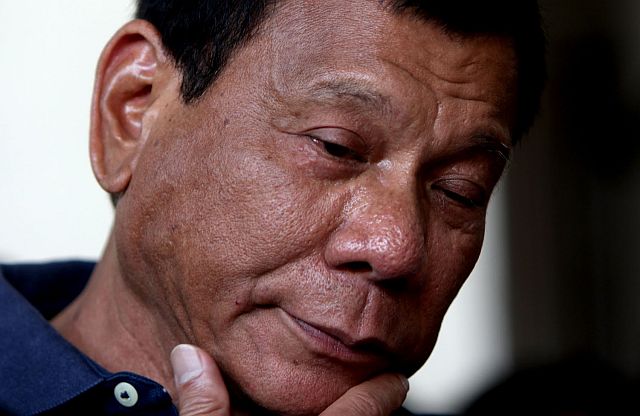Duterte unlikely to change stance on S. China Sea issues—analysts
Despite mounting pressure from Washington and Tokyo over Manila’s tilt toward China, Philippine President Rodrigo Duterte is likely to tread carefully over the South China Sea issue to avoid annoying Beijing during his Japanese trip, analysts said.
Duterte, who arrived in Japan on Tuesday, is expected to meet with Japanese Prime Minister Shinzo Abe and Emperor Akihito during his three-day visit .
The visit comes on the heels of his trip to China last week. Beijing and Manila inked deals on commerce, maritime cooperation and other areas. They also agreed to maintain restraint and enhance bilateral negotiations over the South China Sea dispute, which had caused relations to nosedive before Duterte took office in June.
READ: China trip bags $24-B deals
Still, Tokyo has called on Duterte to raise the issue with China, according to Japanese media reports.
READ: Japan seeks to clear up Duterte’s foreign policy
Foreign spokesman Lu Kang said on Tuesday that China and the Philippines are making joint efforts to restore bilateral ties and other countries should take positive measures for regional peace and stability.
While economics will be a major topic of Duterte’s visit to Japan, it is likely that the South China Sea issue also will be on the agenda, Duterte said on Friday.
“My talks with the Japanese government, particularly the premier (Prime Minister Abe),” Duterte said, would be mostly “economic operation and of course shared interests.” Those interests, he said, could include the South China Sea.
But Xu Liping, a senior researcher on Southeast Asian studies at the Chinese Academy of Social Sciences, said that when Duterte meets with Abe, he is more likely to emphasize general principles, such as “maintaining the lawful order” rather than parsing sovereignty issues.
“Duterte’s attitude on the South China Sea is clear,” Xu said, noting that China and the Philippines issued a joint statement to address South China Sea issues via consultation and negotiation.
Jin Yong, deputy head of the School of Foreign Studies at Communication University of China, said Duterte will not bend to the will of other countries, including the US and Japan, as he pursues pragmatic cooperation with China.
